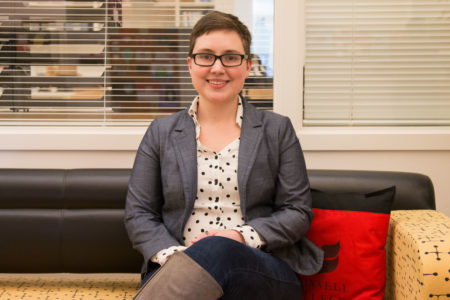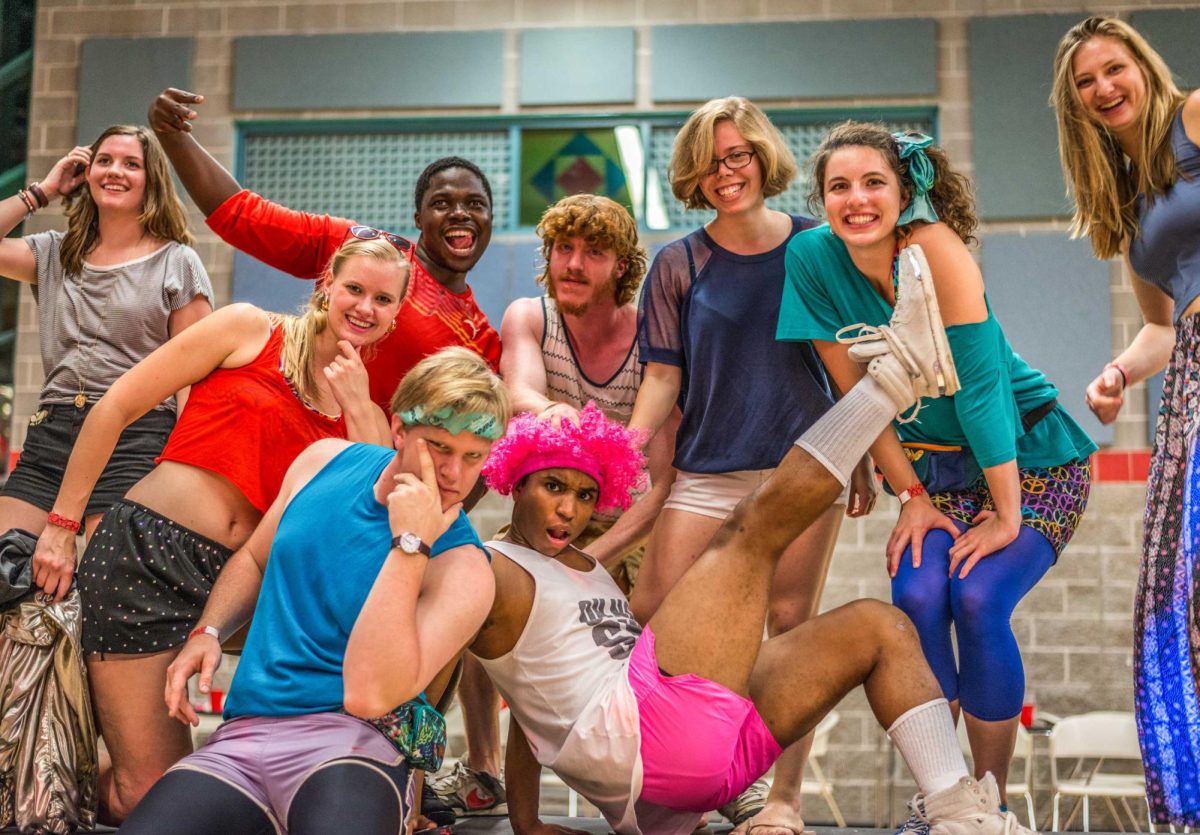By Eva Hill
hilleva@grinnell.edu
Most students have probably visited the third floor of the Joe Rosenfield ’20 Center at least once in their time at Grinnell, whether they were picking up their room key, gaining permission to have a guest stay over or visiting one of the many resource offices housed on that floor. One of those offices is the Office of Accessibility and Disability Resources, which provides assistance to students with disabilities in many different facets of their lives at Grinnell.
Writing about her position as Assistant Dean of Disability Resources at the College, Autumn Wilke described the responsibilities of her job. “I have a very dynamic role, and my day-to-day functions change drastically based on the current individuals I am working with and the specific aspects of accessibility that the campus is working to tackle,” she wrote in an email to The S&B.
Wilke explained that, among other duties, she participates in the oversight of accommodation support for students, staff, faculty and campus visitors. In addition, she manages various groups of students who work to improve accessibility on campus, including the Access Leaders, who audit campus buildings for accessibility, Digital Accessibility Student Leaders, who create accessible forms of documents and videos and classroom assistants who work to support students with disabilities within their academic classes.
On top of all these duties, Wilke wrote, “I also work closely with the Council on Diversity and Inclusion and with Intercultural Affairs to address the inclusion of people with disabilities, to address campus climate issues and to advance disabled pride.”
Miho Tatsuki ’20 works as an access leader for the Disability Resources Office. Tatsuki said that in her position, she’s done accessibility walkthroughs of various buildings, including the John Crystal Center, the Center for Careers, Life, and Services and the Humanities and Social Sciences Complex (the walkthrough was completed before the building opened to the general student body).
During the walkthroughs, she and the other access leaders evaluated the buildings for compliance with the standards set by the Americans with Disabilities Act (ADA), then compiled a report with their findings.
Tatsuki, who has been working for the office for two years, described the initial training she received for the position, which included going to the Institute for Human-Centered Design in Boston, Massachusetts. The training focused on the use of user-experience design in buildings.
Describing this concept, Tatsuki said, “Traditionally, the people who design buildings are different from the people who might actually use the buildings.” This especially applies to people with disabilities who use and work in the buildings, she explained, and the principles of user-centered design are intended to bring into the design process the voices of people with various needs who might use the building.
Wilke wrote that one of the more difficult parts of her job can be getting the whole campus involved in cases where most or all of the general population must participate to improve accessibility: for example, keeping ramps accessible relies on all students not chaining their bikes to the sides of those ramps. She wrote, “Continuous campus education is needed. … This is especially true because disability is an incredibly broad term and individual people experience access barriers differently which means that lots of education is necessary.”
Students with disabilities who work on campus can receive assistance from Wilke in exploring accommodations within their jobs. She explained, “Students with disabilities who are unsure what accommodations may be helpful and reasonable for their specific workplace are welcome to meet with me to discuss potential supports and receive assistance in thinking about potential modifications that do not alter the essential functions of their position.”

Photo by Helena Gruensteidl.


















































